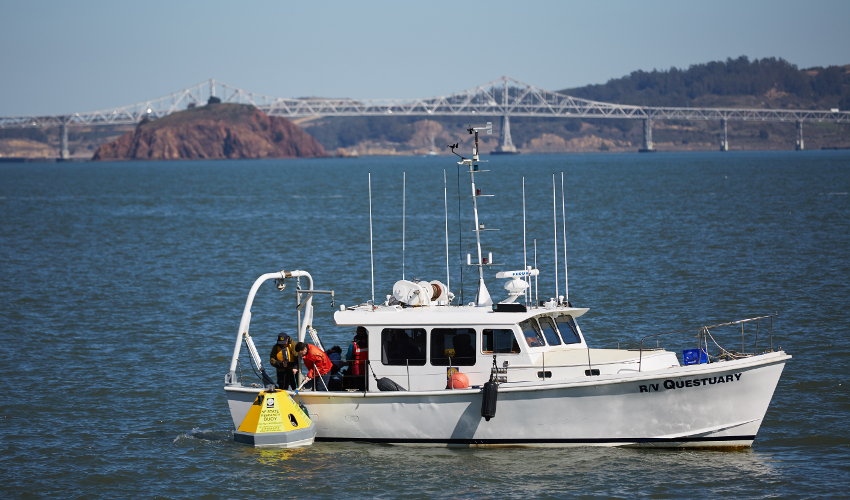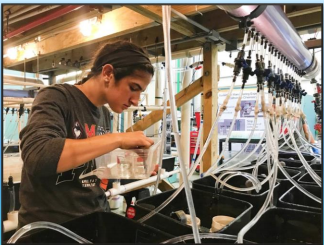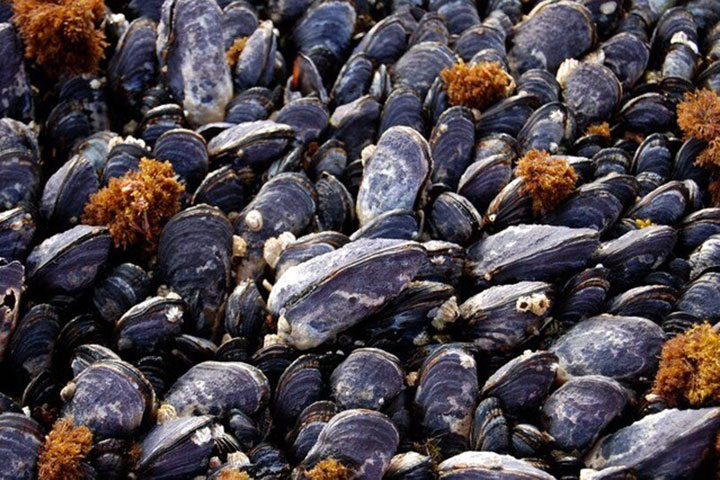
Ocean acidification poses new concern for San Francisco Bay water
Visitors to the Tiburon shoreline may notice a new addition to the seascape — a five-foot tall, bright yellow buoy anchored just offshore San Francisco State University’s Estuary and Ocean Science (EOS) Center. The Bay Ocean Buoy (BOB) and its companion mooring for Marine Acidification Research Inquiry (MARI) bring together researchers at SF State, the




